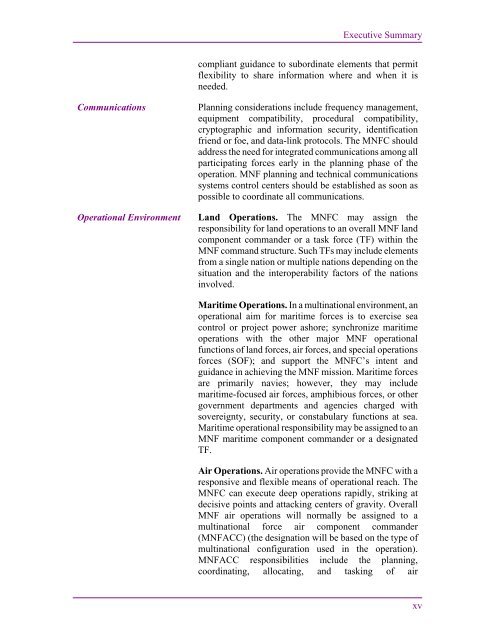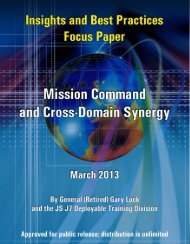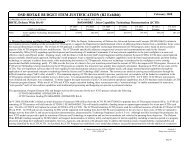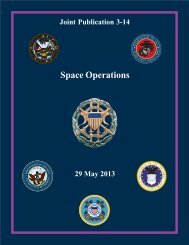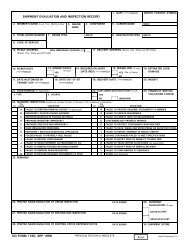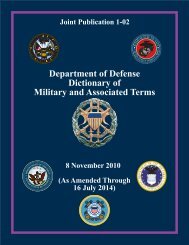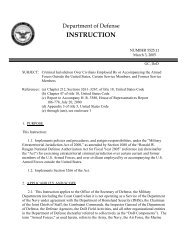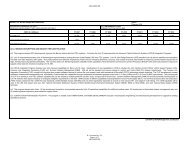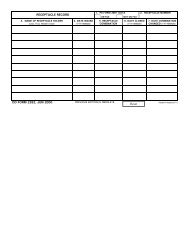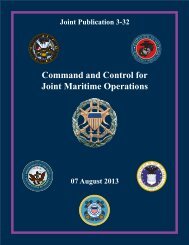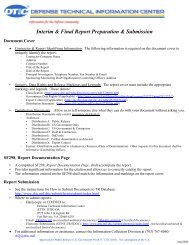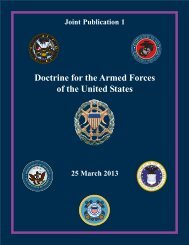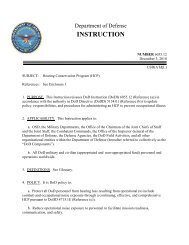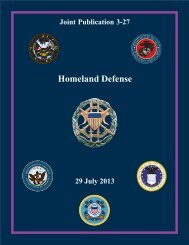JP 3-16, Multinational Operations - Defense Technical Information ...
JP 3-16, Multinational Operations - Defense Technical Information ...
JP 3-16, Multinational Operations - Defense Technical Information ...
Create successful ePaper yourself
Turn your PDF publications into a flip-book with our unique Google optimized e-Paper software.
Executive Summary<br />
compliant guidance to subordinate elements that permit<br />
flexibility to share information where and when it is<br />
needed.<br />
Communications<br />
Operational Environment<br />
Planning considerations include frequency management,<br />
equipment compatibility, procedural compatibility,<br />
cryptographic and information security, identification<br />
friend or foe, and data-link protocols. The MNFC should<br />
address the need for integrated communications among all<br />
participating forces early in the planning phase of the<br />
operation. MNF planning and technical communications<br />
systems control centers should be established as soon as<br />
possible to coordinate all communications.<br />
Land <strong>Operations</strong>. The MNFC may assign the<br />
responsibility for land operations to an overall MNF land<br />
component commander or a task force (TF) within the<br />
MNF command structure. Such TFs may include elements<br />
from a single nation or multiple nations depending on the<br />
situation and the interoperability factors of the nations<br />
involved.<br />
Maritime <strong>Operations</strong>. In a multinational environment, an<br />
operational aim for maritime forces is to exercise sea<br />
control or project power ashore; synchronize maritime<br />
operations with the other major MNF operational<br />
functions of land forces, air forces, and special operations<br />
forces (SOF); and support the MNFC’s intent and<br />
guidance in achieving the MNF mission. Maritime forces<br />
are primarily navies; however, they may include<br />
maritime-focused air forces, amphibious forces, or other<br />
government departments and agencies charged with<br />
sovereignty, security, or constabulary functions at sea.<br />
Maritime operational responsibility may be assigned to an<br />
MNF maritime component commander or a designated<br />
TF.<br />
Air <strong>Operations</strong>. Air operations provide the MNFC with a<br />
responsive and flexible means of operational reach. The<br />
MNFC can execute deep operations rapidly, striking at<br />
decisive points and attacking centers of gravity. Overall<br />
MNF air operations will normally be assigned to a<br />
multinational force air component commander<br />
(MNFACC) (the designation will be based on the type of<br />
multinational configuration used in the operation).<br />
MNFACC responsibilities include the planning,<br />
coordinating, allocating, and tasking of air<br />
xv


